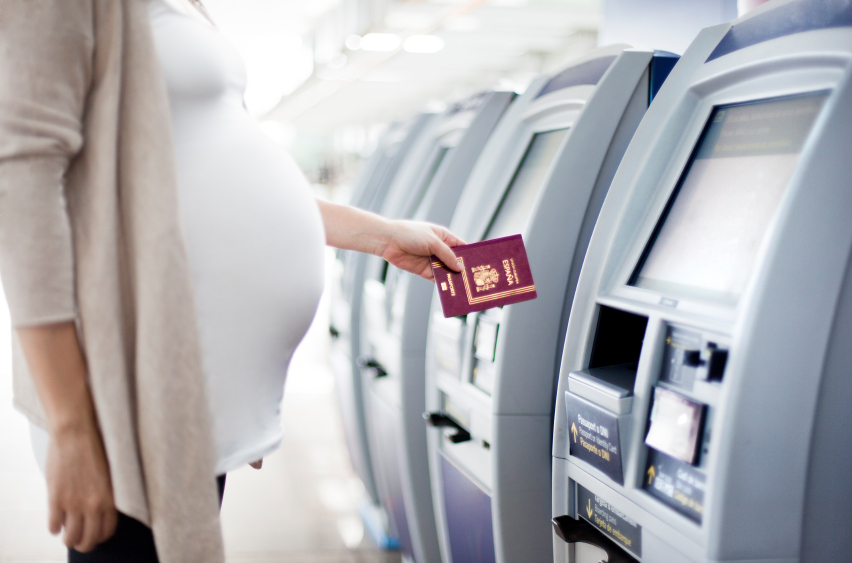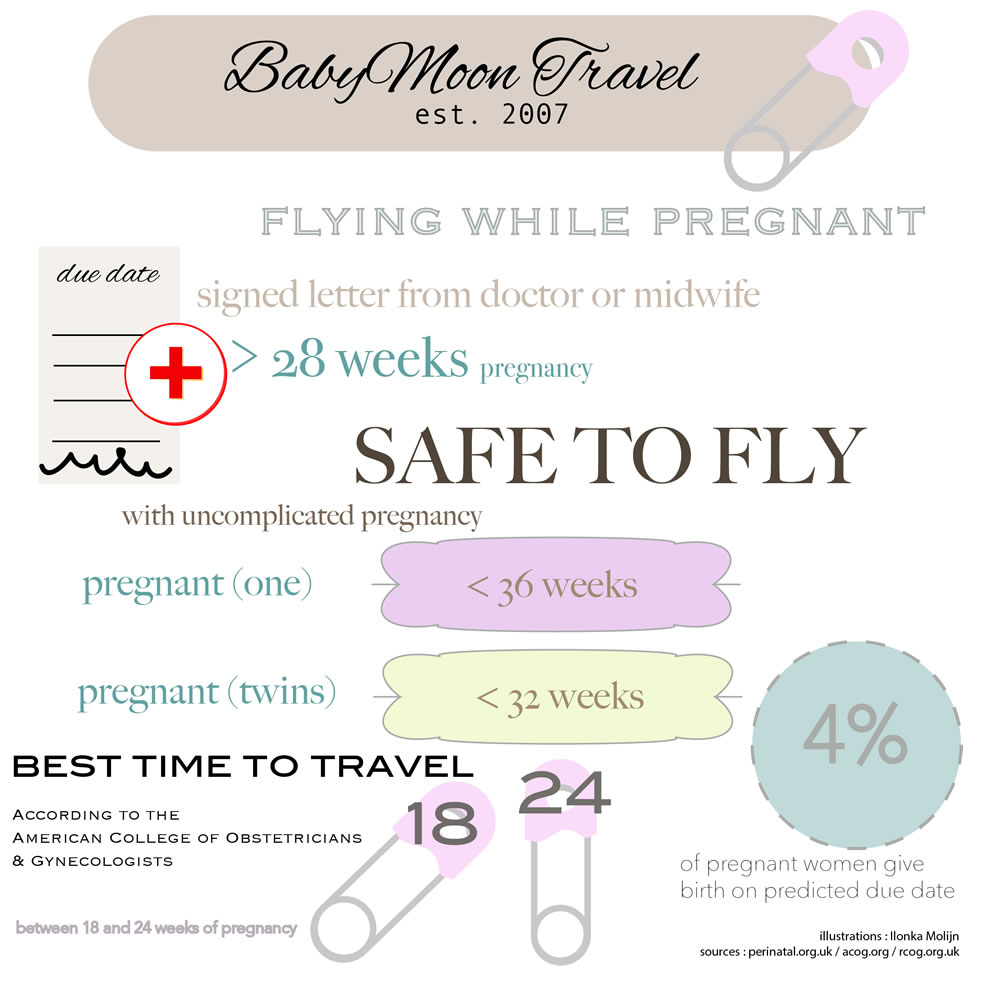FLYING WHILE PREGNANT
Is it safe to fly while pregnant? At BabyMoon® Travel, we’ve heard this question many times. It is often thought that you can not fly at all during pregnancy. Some expectant mothers are concerned about radiation in planes and others would like to know if they can fly when expecting twins.
We have compiled a list of the top 9 questions we’ve heard the most and added some personal experiences too. We hope it will be helpful when you decide on your destination for your babymoon.
1. What is the safest time for a pregnant woman to travel?
According to the American College of Obstetricians and Gynecologists, the safest time for a pregnant woman to travel is during the second trimester (18 through 24 weeks).
2. When is the safest time to fly during pregnancy?
Travel by air is usually safe for mothers-to-be. However, once you are 36 weeks into your pregnancy, flying is not recommended. Flying during the first week following delivery is discouraged as well, both for you and your baby.
3. When is the safest time to fly during a twin pregnancy? Can I fly when expecting twins?
If you are expecting more than one baby, consult your physician first. If you have had complications, you always need to have permission to fly from your physician.
In general, the safest time to fly during a twin pregnancy is before 32 weeks, when you are having an uncomplicated twin pregnancy.
With British Airways you cannot fly when you are at the end of the 32nd week and pregnant with more than one baby.

4. What should I bring with me to the airport?
After 28 weeks you must carry confirmation from your doctor or midwife (such as a letter or certificate, in addition to your pregnancy record) confirming your approximate due date and that there are no complications with your pregnancy.
Note from the creator of BabyMoon® Travel, Ilonka Molijn. “During my first pregnancy I was very happy to have brought my doctor’s papers with my due date on it. I looked like 9 months pregnant instead of 5 months. The airline staff at Verona airport in Italy asked about my due date because they were confused. So I would advice to always bring your confirmation with your due date with you, even if you are not even close to 28 weeks of pregnancy.”
5. What discomfort can I experience when flying pregnant?
- Swelling of your legs due to fluid retention (oedema)
- Ear Problems. The changes in air pressure in the plane can cause you to experience problems in your ears, often combined with a blocked nose.
Note from the creator of BabyMoon® Travel, Ilonka Molijn. “I experienced swelling of my feet when flying home from our Maldives honeymoon. I didn’t even know that I was pregnant and found out later at home. We had a stop-over in Zurich and there my shoes didn’t fit me anymore. Bringing an extra pair of sandals or slippers in your carry-on bag can come in handy too !”
6. What is DVT and what is the increased risk when flying pregnant?
Deep Vein Thrombosis (DVT) is a blood clot that forms in your legs or pelvis. The risk of a DVT increases with the length of your flight. It also increases if you are having additional risk factors such as a previous DVT or if you are overweight.
Always check your risk with your doctor before flying.
7. What is considered short and long-haul flights?
Short haul flights < under four hours
Medium and Long haul flights > over four hours
8. Do you have tips for pregnant women in the air?
•wear flat and comfortable shoes
•place a pillow against the lower back to ease strain
•try to walk every two hours, this will help combat swelling and discomfort
•keep hydrated and avoid coffee and tea. Drink plenty of water, at least one litre for every two hours in flight
•keep your seatbelt low around your hips, not around your abdomen
9. Is it harmful to me and my baby to fly?
With an uncomplicated pregnancy, flying is not harmful to you and your baby.
According to the British Royal College of Obstetricians & Gynaecologists, there is no evidence that the changes in air pressure and/or the decrease in humidity have a harmful effect on your or your baby. There is also no evidence that flying will cause miscarriage, early labour or your waters to break.
Anyone who flies is exposed to a slight increase in radiation. Occasional flights are not considered to present a risk to you or your baby.
The Royal College of Obstetricians & Gynaecologists put their useful advice in this handy pdf leaflet called Air Travel and Pregnancy.
BabyMoon Travel’s Tip: Complete Guide to Travelling when you’re pregnant by CompareTravelInsurance.com.au

